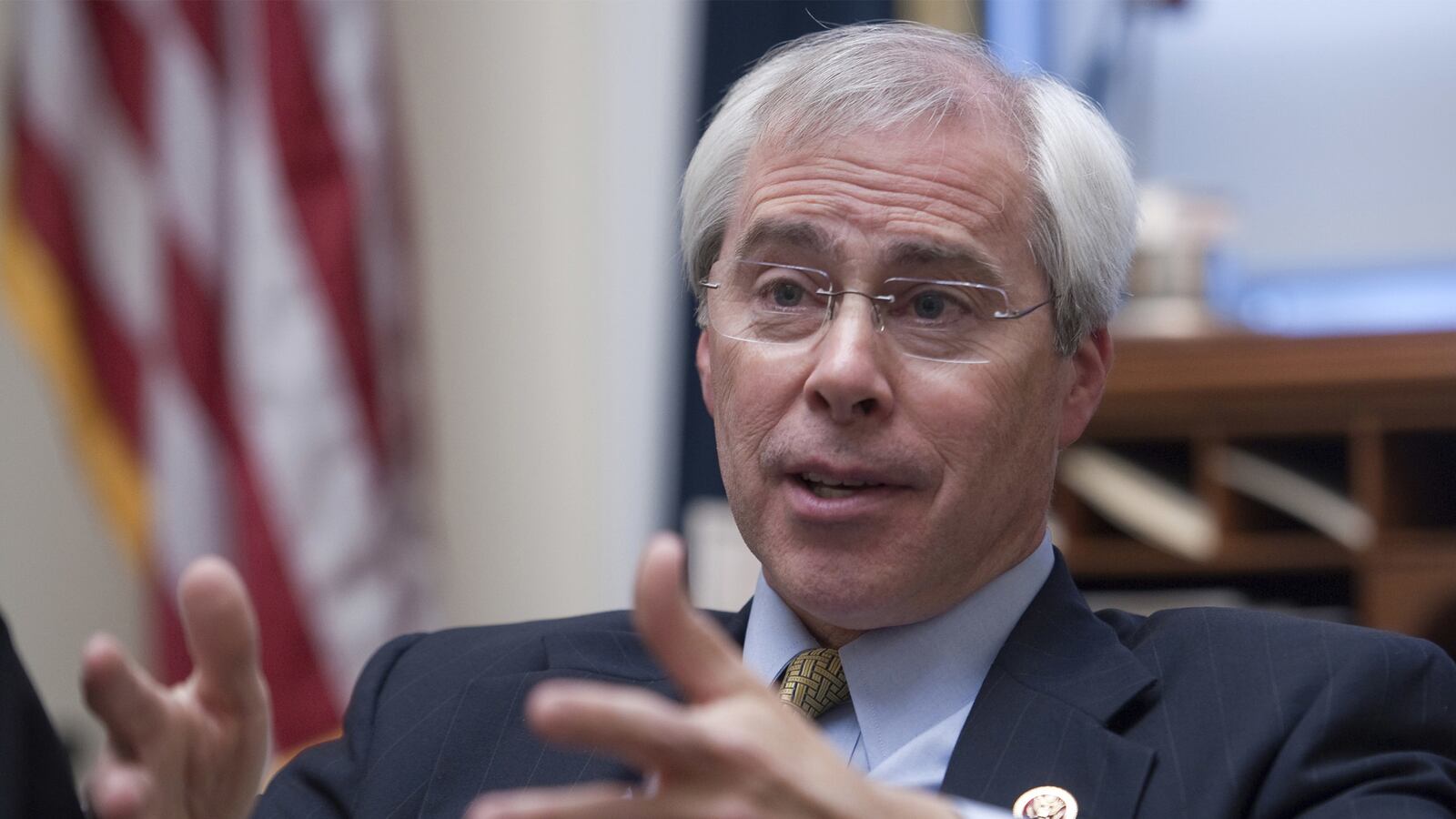The loneliest Democrat in Congress, Georgia’s John Barrow, just got a little lonelier: the blue dog lost reelection Tuesday by a stinging ten-point spread amid an avalanche of outside Republican spending.
His party’s last white federal lawmaker from the Deep South, Barrow had become both an institution and perennial target. He twice moved his home in the span of six years, from Athens to Savannah and later from Savannah to Augusta, after sly Republican mapmakers in the state capitol repeatedly reconfigured his district to include more rural, conservative voters.
He was at times both an ally and annoyance to President Obama. In 2009, as Republican advertisements this year repeated ad nauseam, he “voted with Obama 85 percent of the time.” But in 2011 that measure of political affinity had fallen to 59 percent; in 2012, when he crossed the aisle to support a congressional censure of Attorney General Eric Holder, it had dropped to just 35 percent.
For a time, it seemed he had struck the perfect balance of folksy moderation to appease his conservative constituents while still not severely depressing his Democratic base. Even as Mitt Romney carried the district by 12 points in the last presidential contest, he coasted to an easy 8-point victory over then-state Rep. Lee Anderson. In Republican election committees on the Hill, “Barrow” had become a dirty word said only in hushed tones.
But after a decade of GOP incompetence and massive recruitment blunders—think nominees who tripped over their words as often as their own laces—the map and the math finally bite Barrow in the ass this week.
A spectacularly disciplined candidate, he offered up no awkward for-whom-did-you-vote gaffes in the manner of other southern Democrats, and repeated attempts by his GOP rival to manufacture controversy consistently fizzled. (No one cared when Republicans accused Barrow of violating House ethics rules on—wait for it—Facebook, least of all House ethics watchdogs.)
And whereas his opponent’s advertising effort was conventional (he’s a proxy for Obama and Pelosi!), the Barrow model blended television whimsy and political wit. Twice in advertisements he brandished his grandpappy’s Smith & Wesson—a gun, he said in a cute nod to both conservative gun owners and African Americans, that was used to stop a lynching.
Everything was going right, at least outwardly. Money was pouring in. Powerhouse Washington lobbies that ordinarily supported Republicans, like the National Rifle Association and the U.S. Chamber of Commerce, were lending their support and imprimatur. And his GOP opponent’s campaign appeared adrift.
For years, attempts by sympathetic reporters or columnists to review Barrow’s internal polling or early fundraising figures were rebuffed by uncommonly loyal attendants, but in private conversations Wednesday the blue dog’s battle-weary aides told me their boss never trailed his Republican challenger in their confidential surveys.
Still, at least one Democrat close to Barrow conceded, Tuesday’s defeat was not altogether surprising. He quipped that the defeat “probably would’ve happened” last cycle had Barrow’s previous opponent, Anderson, “not been an idiot.”
Anderson, a taciturn state legislator and farmer whose campaign logo was simply the silhouette of a tractor (better a tractor than jowls), repeatedly refused to debate Barrow until the blue dog took to camera to admit his support for the president. He didn’t, and instead ridiculed Anderson in the press as an intellectual lightweight unworthy of a deliberative body like the House of Representatives. Republican voters agreed.
But Barrow’s well of luck, once seemingly bottomless, ran dry this year when Rick Allen, who only narrowly lost his party’s nomination last cycle, finally won the right to challenge Barrow.
Allen wasn’t a transformative candidate or especially charismatic. But he had a personal fortune—he spent $1.5 million of his own money on the race—and a competent, if uninspired, message. He’d finally given Republicans a reason to stop voting against their own nominees.
And after all the millions that Washington Republicans spent here, all it took was a guy who could walk and chew gum at the same time.
James Richardson, who serves as vice president of Hynes Communications, was a spokesman for the Republican National Committee and Governors Haley Barbour and Jon Huntsman. He edits the Georgia political blog GeorgiaTipsheet.com.






